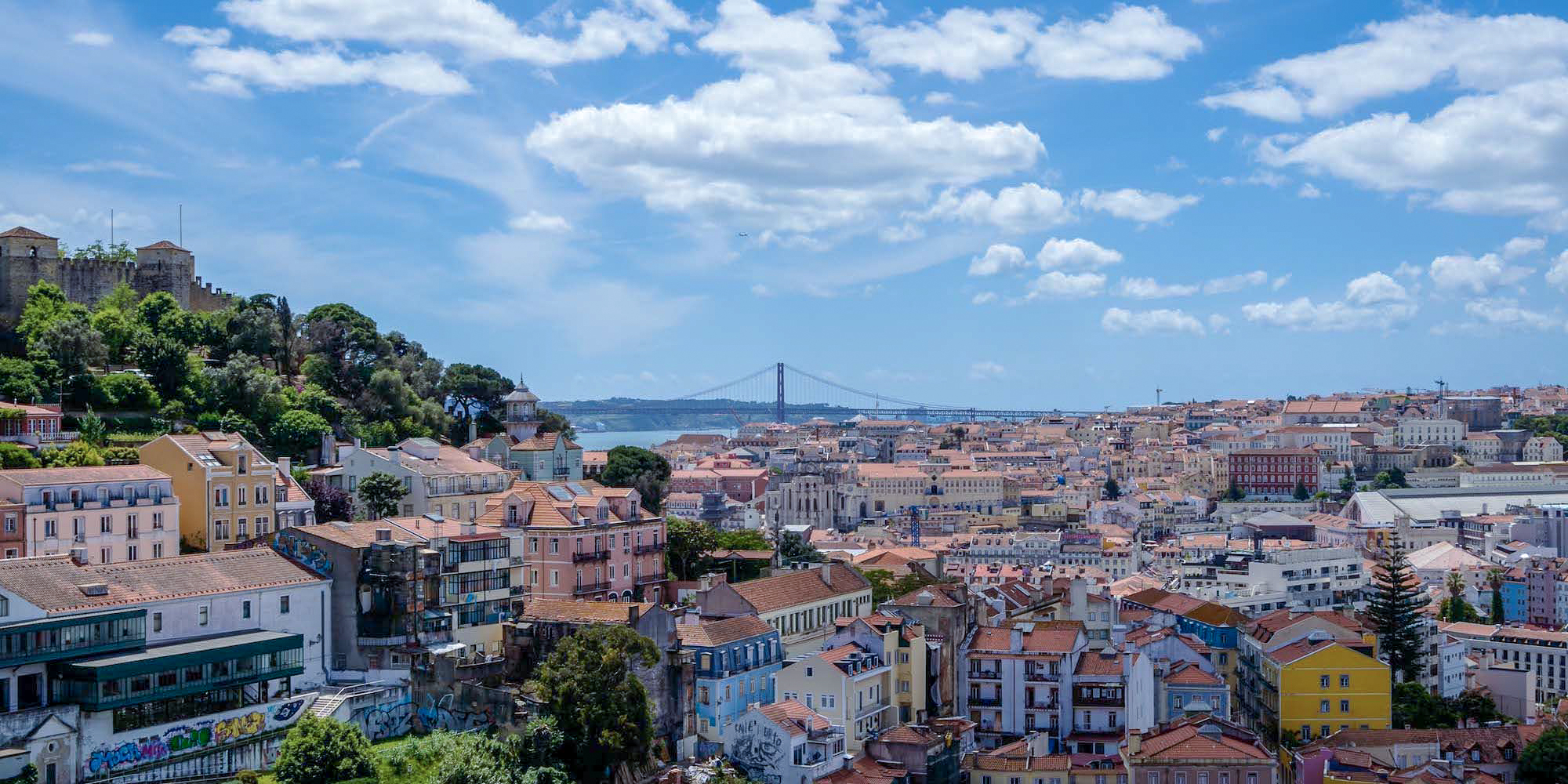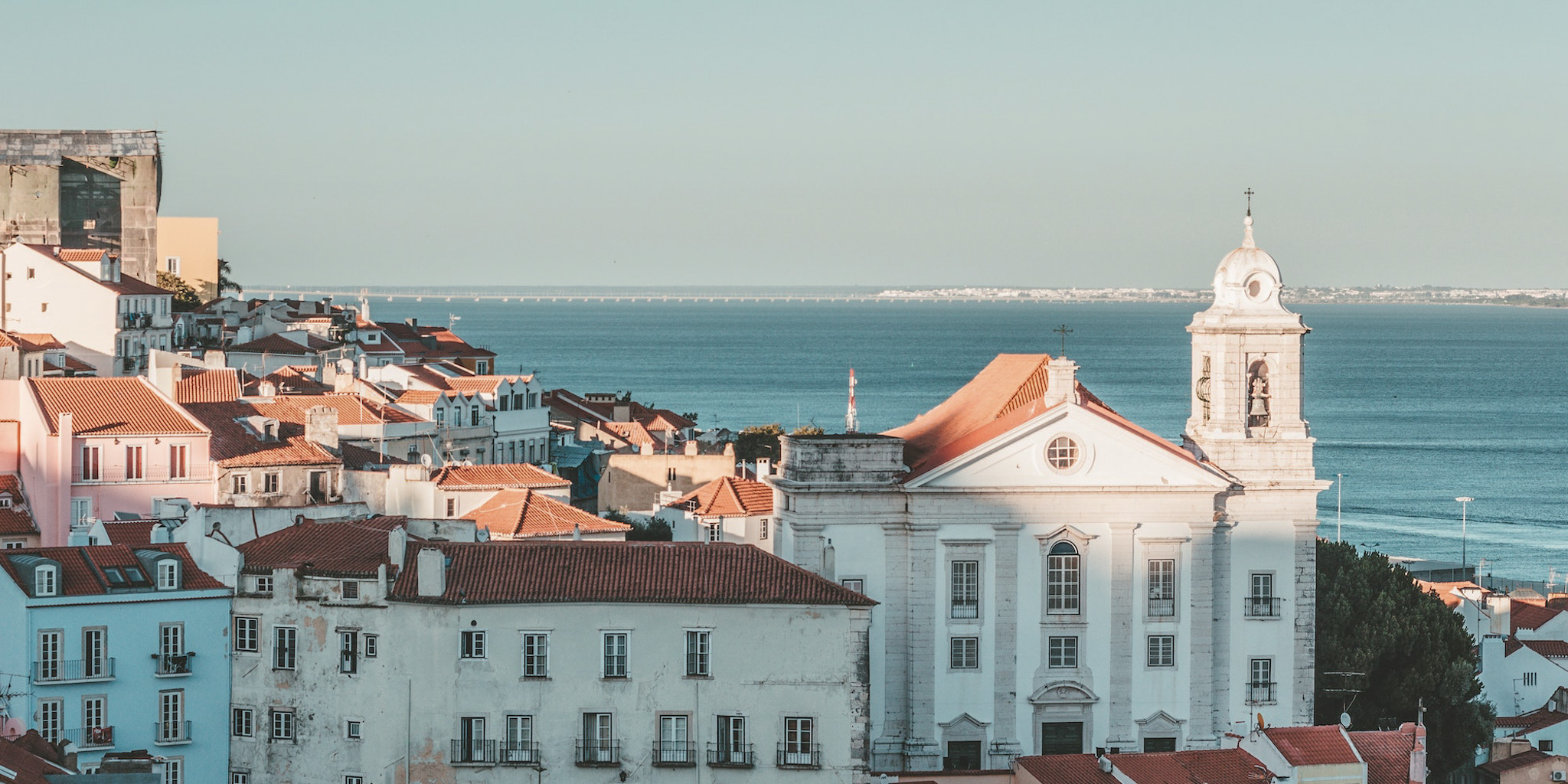
Your vital guide to navigating the real estate market in Lisbon - property prices, the buying process, and insights on where to invest in the city.
Over the past few years, property for sale in Lisbon has become one of the top targets by international property investors across the world, for many reasons. From the extremely popular Golden Visa programme that’s attracted billions of euros of investment to the opening of offices by some of the worlds biggest companies like Amazon and Google, Lisbon has cemented its place on the global property investment map.
WHY INVEST IN LISBON?
An investor’s market
The Portuguese economy has grown steadily since the crisis in 2008 and the real estate market has followed this rhythm. The combination of tax incentives for investors, policies to support new businesses and the wave of regeneration throughout the city has been changing the urban landscape and cultural environment for the better.
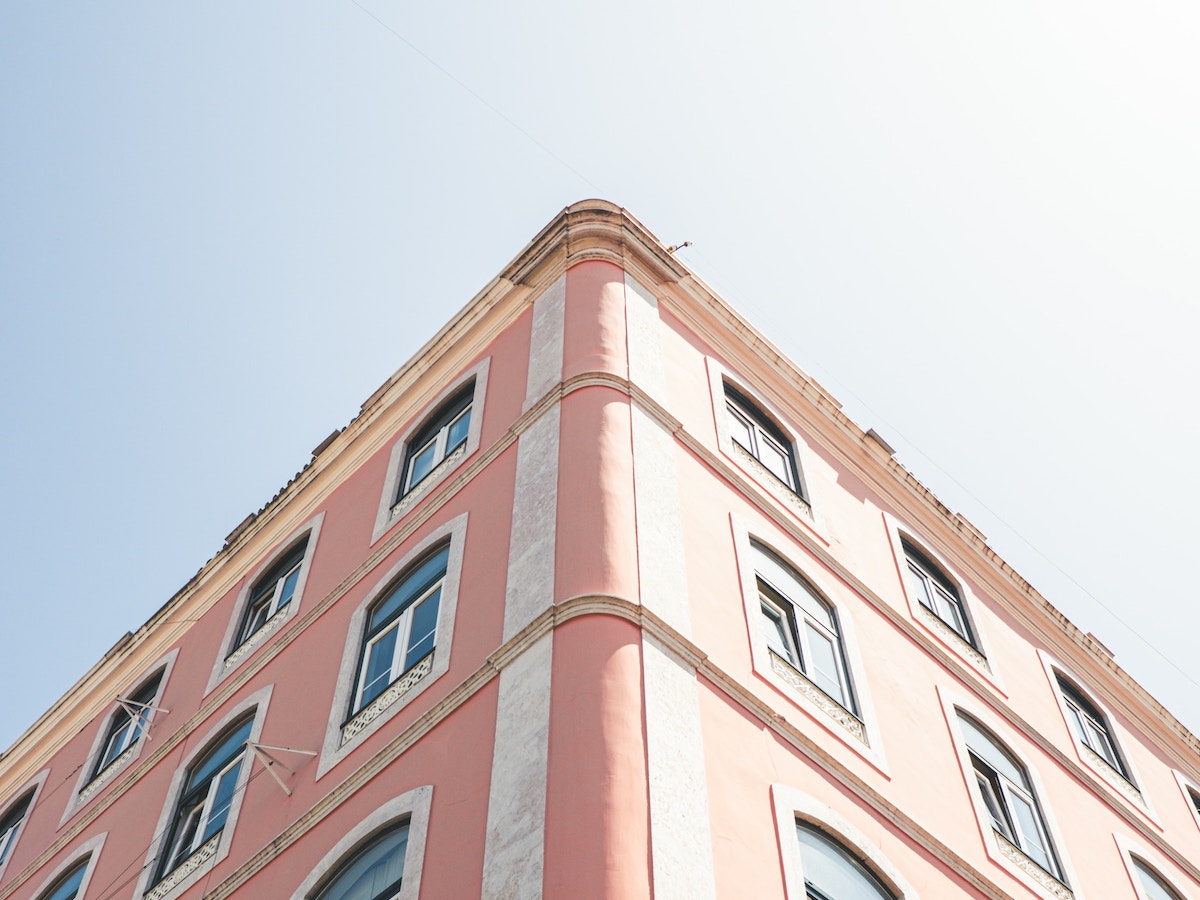
Continuous improvement
Lisbon is not a city that rests on its laurels. Public and private investment continues to improve the city centre as well as newer areas around the centre. Areas like Marvila, home to what will be the world’s largest start-up hub – Hub Creativo Beato (three times the size of the current world largest in Paris) is part of a €3.6bn regeneration in Lisbon’s equivalent of New York’s meatpacking district. Such investment has already attracted other global heavyweights such as Mercedes to this unique district that hugs the river Tagus.
Tax benefits
The removal of inheritance tax in 2004, plus fiscal benefits for retirees and low or even no taxation on profits and dividends generated outside of Portugal has brought a new type of immigration to the country. The new wave of “Lisboetas” are qualified professionals looking to have a fantastic quality of life whilst investing wisely and securely.
Incentives for entrepreneurs
The Portuguese government offers various incentive programmes for new businesses. Added to the low cost of living in Lisbon, it’s no wonder that the city has been attracting more and more young entrepreneurs, generating a new wave of startups and businesses, stimulated by the Non-Habitual Resident (NHR) fiscal incentives programme, one of the most interesting of its kind in the world.
Quality of life
One of the most beautiful cities in the world, Lisbon elegantly mixes tradition with modernity. With great infrastructure, easy access and affordable prices, plus amazing beaches and an average 300 days of sunshine per year, Lisbon is the perfect place to enjoy life outdoors.
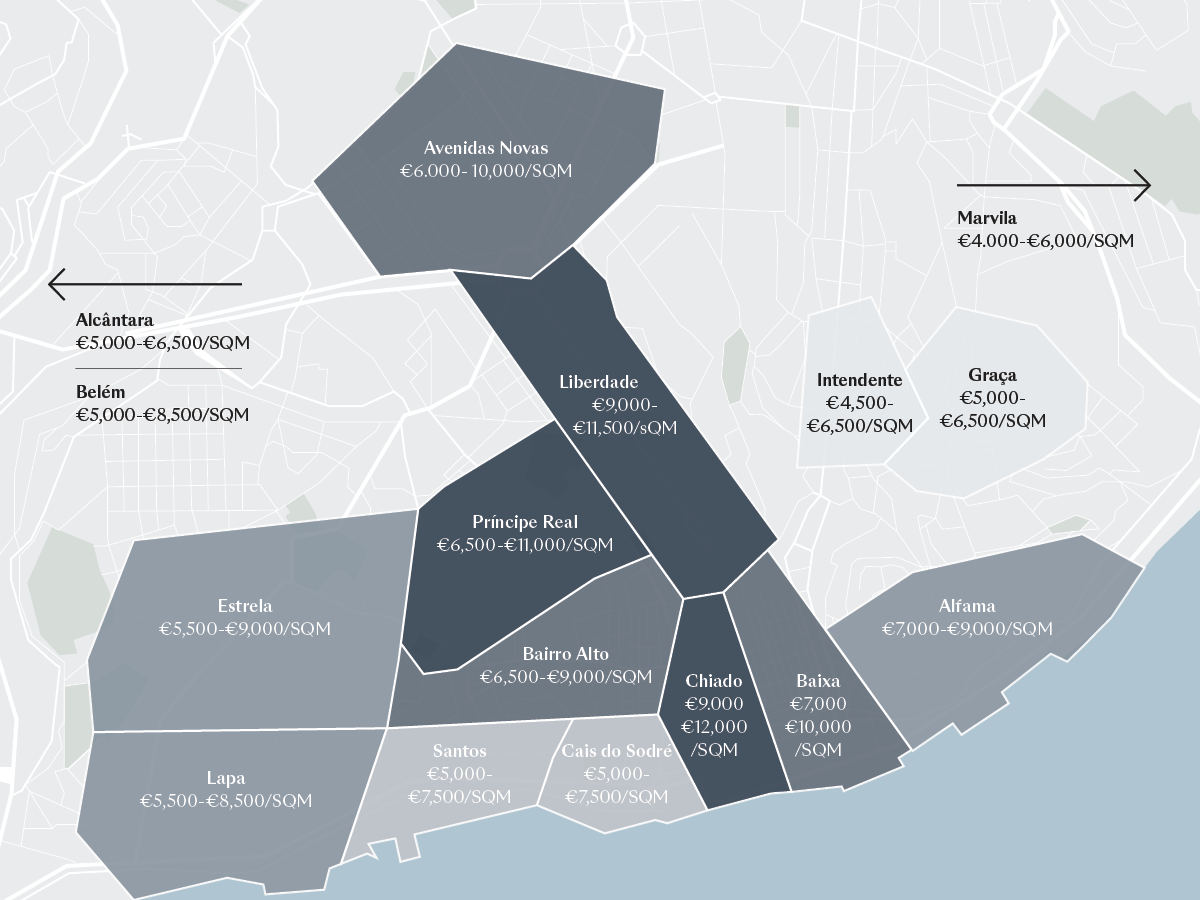
PROPERTY PRICES IN LISBON
Prices are rising in the country’s capital, yet well-located properties for sale in Lisbon still have great potential for growth depending on the area. Generally, when comparing property prices in Lisbon to values in other major European capitals, the average price per sqm for properties in Lisbon is still low, especially considering the continued public and private investment pouring into everything from infrastructure to businesses.
With tourism having risen by over 50% between 2012 and 2019, the demand for short and long-term rentals keeps rising, with major new business centres being added to the city.
What does the future hold when buying a property in Lisbon?
Lisbon 2030
Whilst Lisbon’s real estate market is definitely becoming more mature, both recent and forthcoming investments are elevating this city to the next level. Over the next 10 years, billions of euros in public and private investment will be poured into the business sector, international and domestic infrastructure and overall regeneration, further reshaping the Portuguese capital. With more and more businesses and professionals choosing Lisbon as their home and a continued increase in tourism, new ways of investing are attracting different types of investors. This demand is feeding through to the real estate market and causing rental yields to grow.
Transportation
Named the European Green Capital of 2020, Lisbon is planning ahead and improving its public transport. Two new subway stations, two new train stations and several bus and tram services will be added in the upcoming years. Lisbon also has 1,500 shared bicycles and a flourishing network of cycle paths which will soon span 200km.
Arts & culture
Lisbon’s arts and culture scene continues to evolve too and the city hall has announced an investment of over €80m in new arts facilities. Meanwhile, the Cultural Centre of Belém (CCB) and the International Exhibit Lisbon Centre (FIL) are undergoing expansion
New business hubs
With a thriving economy and one of the lowest unemployment rates in Europe, Lisbon is the future home of what will be the world’s largest startup hub – the 100,000 sqm Hub Criativo Beato. Other major business hubs include the Alcântara Complex, Exeo Campus and the forthcoming K-Tower. Together, these will create 100,000 jobs for the city. Plus, major international companies such as Google and Amazon have opened offices in Lisbon.
Healthcare
Ahead of the UK and Spain, Portugal is ranked as Europe’s 13th best healthcare system in 2018. Portugal is investing heavily in new medical facilities. Lisbon will see two new hospitals and a major cancer research centre, worth over €480m. For more information, read our Journal article, “What you need to know about healthcare in Portugal“.
New Lisbon airport
After over a decade of research and planning, Lisbon will construct a new airport in Montijo. Expected by 2023, this project is worth over €1bn and will double the city’s capacity to 43 million passengers per year.
The process of buying a property in Lisbon
The process of buying a property for sale in Lisbon is relatively easy and in line with other major European countries. The acquisition costs, between taxes, lawyers are around 8% of the buying value of the property. If buying an off-plan property, you can expect to pay 30% of the amount when the contract is signed and the rest in instalments during the construction, with the final instalment to be paid upon signing the deed.
Mortgages
About 70% of the cost of the property can be financed, regardless of nationality or country of residence, with low rates paid back over a period of up to 40 years. Interest rates of between 1.75% -2 .9% can be achieved depending on the purchaser’s profile with a max loan-to-value rate of 70%.
The process
- Select your chosen properties
- Visit the properties
- Reserve and sign the contract & pay instalments during construction
- Complete deed and make the final payment
- Post-sales: decorate, plus get help with administration and rentals when applicable
The costs of buying a property in Lisbon
Acquisition costs
- IMT* - Up to 6% of the sale price, 7.5% on properties at €1m or above. Possibility of exemption in the case of permanent private dwelling — subject to conditions
- Stamp duty - 0.8% of the sale price
- Office / Registry / Lawyers - Approx. 1% of the property value
Ongoing costs
- IMI* - 0.3-0.45% of the market value. Possibility of exemption in the case of permanent private dwelling — subject to conditions
- Condominium charges - €1-2 sqm per month
Sale costs
- Capital gains tax - 21-28%. Exempt if reinvested within 3 years — subject to conditions)
- Inheritance tax - 0%
The Non Habitual Residents programme
Tax-free living in Portugal: is it really possible? Almost. The country’s Non-Habitual Residence Programme (NHR) allows those who become fiscal residents in Portugal to benefit from special, reduced rates, or even no taxation at all, on income generated outside the country — such as profits and dividends — and flat low rates on income generated within Portugal’s borders during 10 years of the programme’s duration.
Main benefits of the NHR programme
- Valid for 10 consecutive years, non-extendable
- Income from abroad — can reach 0% tax*
- Income generated inside Portugal — 20-28% flat rate
- Zero taxation — private retirement funds**
*Conditions to be analysed on a case-by-case basis.
**From 2020 onwards pension income will be taxed at 10%, only applicable to new NHR residents.
Where to buy a property in Lisbon
Compared to cities like Paris or Barcelona, the Portuguese capital is relatively small, therefore when buying a property for sale in Lisbon, it’s important that each of the areas is understood, as each has its own unique charm, charisma and pricing structure.
With good connections by bus, train, and tram, it is very easy to get around in and out of Lisbon. Therefore, even if you prefer to invest in a Lisbon property outside the central area of the capital, the distances between neighbourhoods (and zones) in the city centre are relatively short.
If, however, you want to buy a property in the prime centre, close to the main attractions of Lisbon there are still a wide variety of options for you.
AVENIDA DA LIBERDADE
Chic and cosmopolitan, home to some of the best brands in the world such as Cartier, Miu Miu, Louis Vuitton, and Gucci, this area continues to improve with new hotels, boutique shops and high-end cuisine. Some of the new additions are the JNCQuoi, a multi-concept high-end restaurant and fashion boutique, and Anantara Spa at Tivoli – considered the world’s best hotel spa brand in 2017.
Avenida da Liberdade is the most prestigious and sophisticated avenue in Lisbon with buildings dating back to the 19th century. Characterised by award-winning architecture, baroque palaces, spacious sidewalks with exotic tall trees and cafes, fountains and statues – this vibrant avenue connects Marquês de Pombal to Rossio.
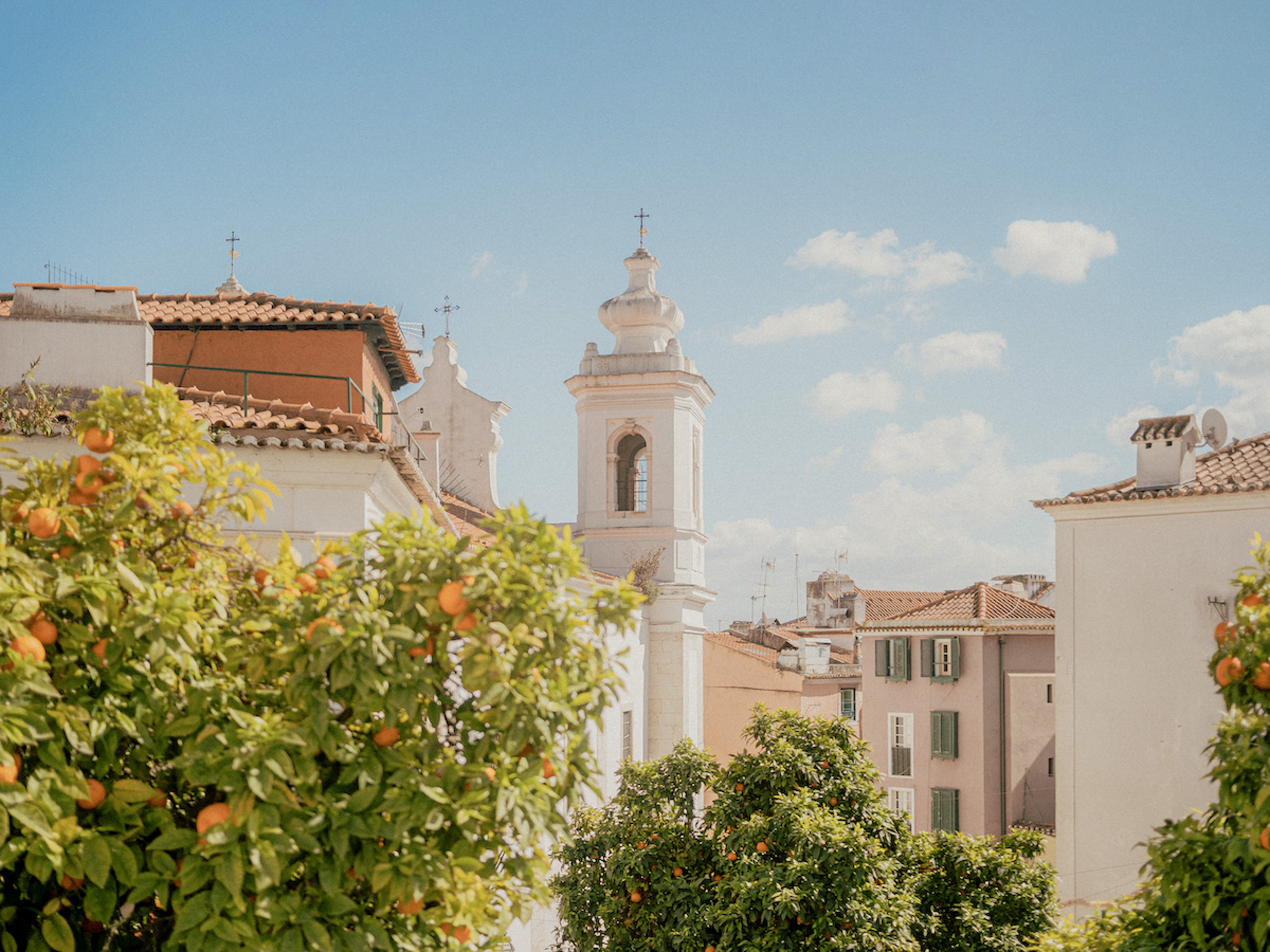
ALFAMA
One of the three historic districts of Lisbon not destroyed by the 1755 earthquake which raised much of the city, Alfama is steeped in old-world culture. For someone buying a property in Lisbon, owning a home here within its confluence of cultures, on a hill over the Tagus with its colourful picture-postcard houses, offers a complete immersion in Lisbon living. This means for buy-to-let investors it’s also a solid bet in terms of long and short term rental yields.
In Alfama’s preserved alleyways, the sounds of fado and community conversations still escape through open doors echoing a voice of history through the labyrinthine streets.
